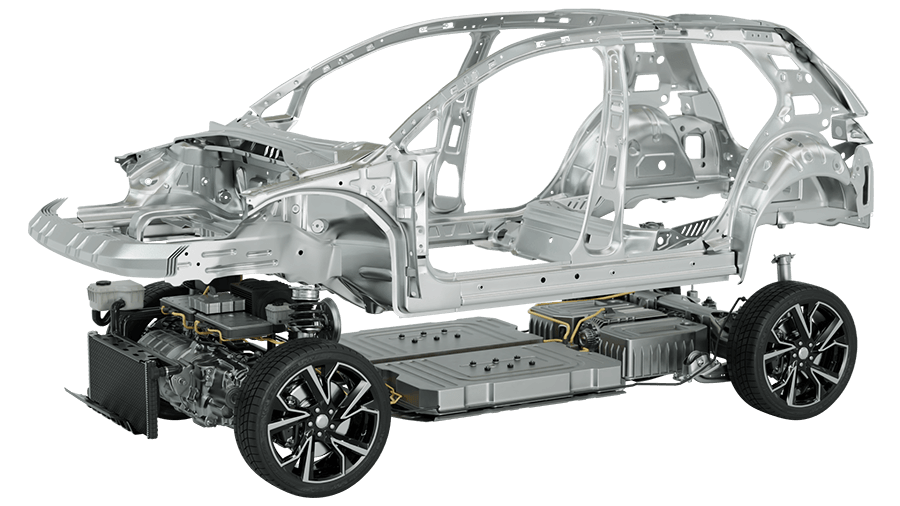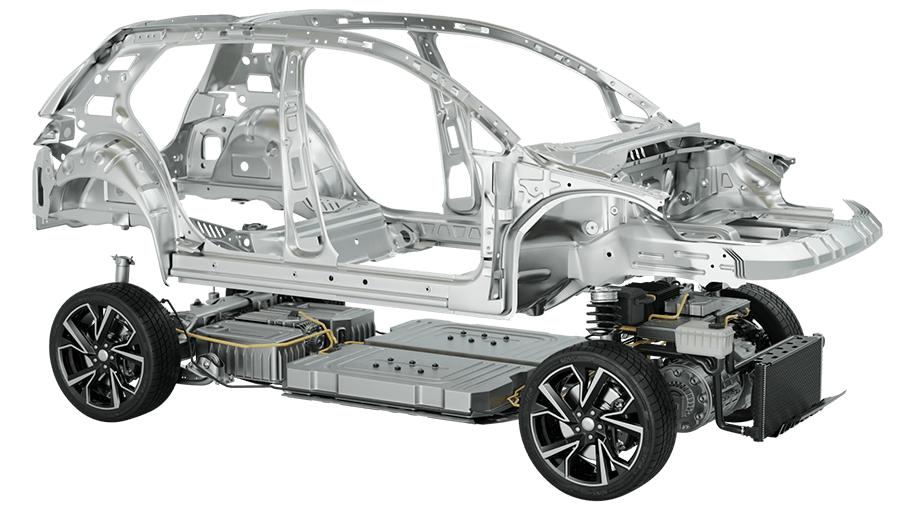At COE, over half our customers are in the automotive industry and we have provided coil processing solutions to today’s EV market leaders.
For companies involved in powertrain manufacturing, the difference between an internal combustion vehicle and an electric vehicle is vast. For companies supplying body components and other sheet metal parts, it’s more like a shift than a tidal wave of change.


With the move toward electric-powered vehicles, which can be 3x heavier than ICE cars, the need for lightweighting will become even more important. Research indicates that an approximate 220 lb. reduction in the weight of an EV can lead to a 10% or higher increase in range from a single charge.
Today, about 54% of an average vehicle is made from steel, with much of this being comprised of newer, advanced high-strength steels (AHSS). As electric vehicles become more commonplace and battery efficiencies improve, the use of advanced steel grades can be one way to help reduce overall vehicle weight and greater range.
Aluminum is also a major player in EVs—especially in terms of battery enclosures. Currently, any long-range Battery Electric Vehicle (BEVs) on the market (EVs with the ability to travel 250+ miles on a single charge) use aluminum as the main battery enclosure material. And, BEVs use more than three times as much aluminum than non-BEVs in platform parts today.
At COE, we have always focused on staying ahead of the curve and our equipment is designed to process the widest range of materials on the market—everything from cold-rolled, hot-rolled, galvanized, stainless or advanced steels to aluminum.
We were the first company to develop a straightener capable of handling 300 KSI materials, and we continually refine our offerings to meet market requirements. Plus, we use Finite Element Analysis and other engineering data to prove our machines will meet your requirements, ensuring you benefit from the industry’s absolute lowest cost of ownership, no matter what material you’re processing.